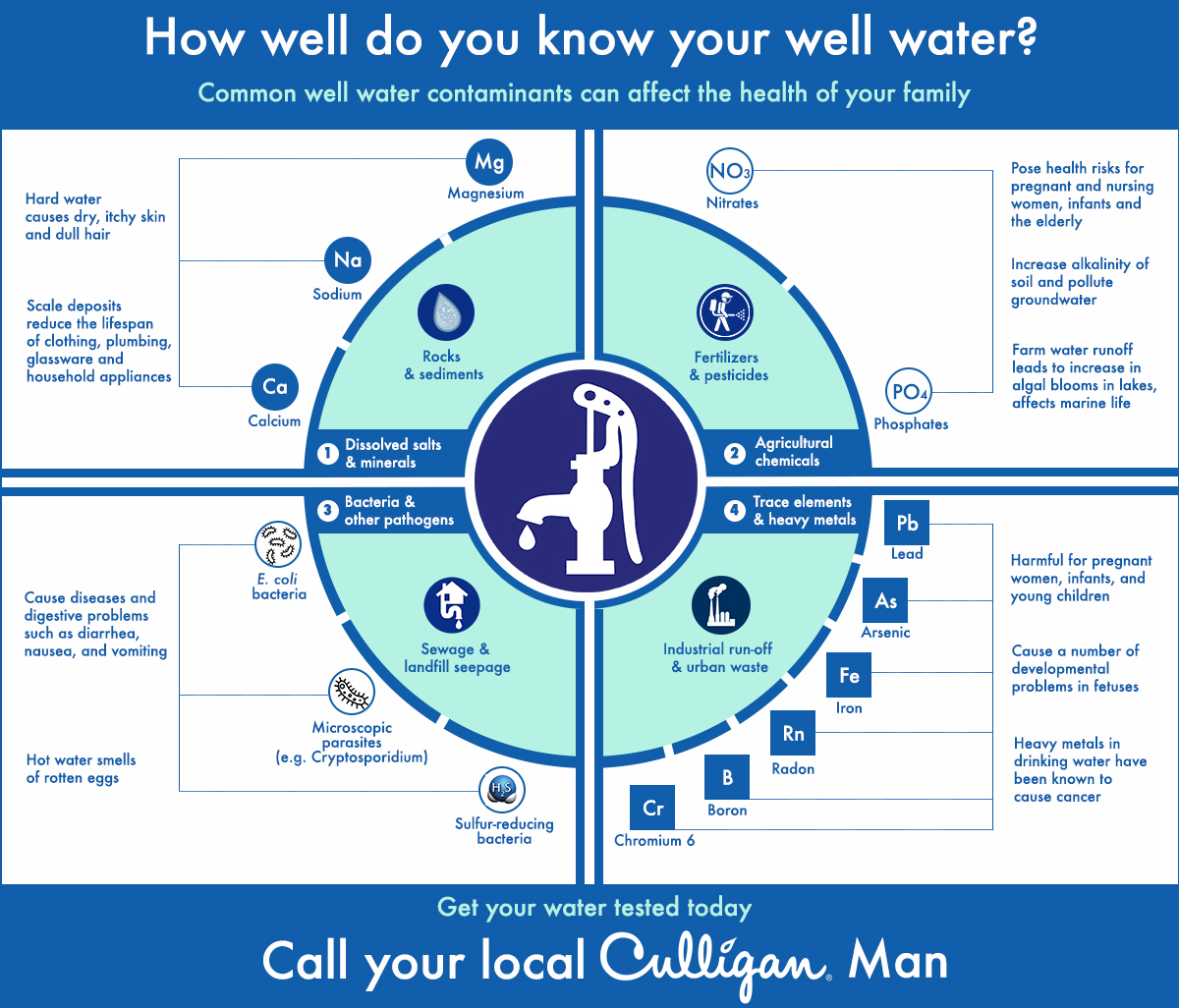What You Should Know About Common Well Water Contaminants
Regular testing and timely maintenance of your private well can help ensure your family's drinking water is healthy and free of harmful contaminants.
Posted in
Contaminant,
Drinking Water,
Hard Water,
Home & Health,
Lead,
Water Filtration System,
Water Problems,
Water Softener,
Water Treatment
15 percent of Americans depend on private wells for drinking water. But, private wells are not covered by the EPA regulations. So if your family relies on a private well for drinking water you should know the safety basics.
What are the most common well water contaminants?
Dissolved salts and minerals:
Well water can contain minerals like calcium, sodium and magnesium. These may not have a direct impact on your health, but their presence causes hard water. Hard water results in dry, itchy skin. And it can reduce the lifespan of clothing and household appliances.
Trace elements and heavy metals:
Arsenic, lead, iron, boron and radon can be common. And private well owners should know the risk. Some of these contaminants come from industrial runoff. And others like lead, can enter a water supply through the plumbing. Lead is a primary concern for homeowners. And it is especially harmful for pregnant women, infants, and young children.
Farm chemicals and nitrates:
Private well owners located near farmland should take caution. And especially where fertilizers and pesticides are heavily used. Phosphates and nitrates can leach into the groundwater. And those chemicals cause a number of health issues, such as kidney problems and cancer. These risks are high for pregnant and nursing women, infants and the elderly.
Bacteria and other pathogens:
In comparison to public drinking water supplies, E. coliand Crypto present a greater risk in private well water. These pathogens enter water through the feces of infected humans or animals. And their health effects can include severe intestinal illnesses.
 How do you ensure your private well water is safe?
How do you ensure your private well water is safe?
- Know your area's water concerns.The location of your home impacts the quality of your well water. And knowing the risks will help you to take the measures to protect your well.
- Construct the right kind of well.Drilled wells are deeper and have plastic or metal pipes. This protects the water from outside contaminants. Consult a licensed contractor or professional to construct the right well for your home.
- Test your water regularly.At a minimum, your should test well water annually. Both at the tap and source. Shallow wells require more frequent testing, because they are more susceptible to contamination. Your local Culligan water expert is equipped to collect a water sample. And our EPA-certified lab can provide analysis.
- Invest in water treatment systems. If your water tests positive for any of these contaminants, don't panic. Culligan has a range of personalized solutions. Water softeners reduce problems caused by magnesium and calcium. And a filtration like reverse osmosis can remove a wide range of harmful contaminants.
